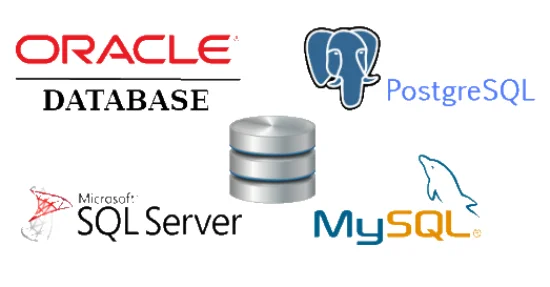In the field of information technology, the term database is used a lot because most applications and software nowadays on mobile, web, PC, and other platforms must use a database to store information. Therefore, the role of the database is extremely important. If you are not sure what a database is, then do read this article.
I. What is a Database?
When there is too much data to remember, we need a system to store it. Depending on the needs and different use cases, each person will store different amounts of information. Data can come in various forms such as text, numbers, characters, images, sounds, etc.

A database is a structured collection of data that is often stored in various file formats, depending on each application. They are generally stored online within a computer system. Depending on the needs and purposes of each application, the storage capacity and form of a database will vary.
II. What Types of Databases Are There?
Databases are divided into several different types, such as:
- File-based databases: Data is saved as files, such as TXT, ASCII, *.dbf, *.mdb, etc.
- Relational databases: Data is stored in data tables called entities. These entities relate to each other through attributes within them. Some common relational database management systems are MS SQL Server, Oracle, MySQL…
- Object-oriented databases: Data is stored in data tables, but these tables also include object-oriented features that represent the behavior of objects. Each data table is considered a class, and a data row within the table is an object. Some well-known management systems that support object-oriented databases include MS SQL Server, Postgres, Oracle, etc.
- Semi-structured databases: Data is stored in XML format, where all information about an object is represented within tags. This type of database has many advantages because it can save a wide variety of data types, making semi-structured databases a new trend in research and application.
III. What Are the Roles and Importance of a Database?
Databases play a vital role in today's technology boom era, some of which include:
- Systematic information storage: Data is stored consistently, within a structure, which is facilitative for users in establishing, storing, searching, and utilizing data accurately and quickly.
- Data safety assurance: Storage needs to ensure data integrity and safety, and databases fulfill this task.
- Ensuring simultaneous access by multiple users on data: Many users can simultaneously use a database without expending much effort, making database management and usage more convenient.
- Flexibility to change according to user needs: The size of the database can be adjusted and changed according to user requirements, with some databases being extremely complex with huge capacities, while others are simpler and lighter.
- Easier management: With the use of a database, support like establishment or updating information is quicker; data is updated regularly, making applications and systems smarter and more professional.
With so many advantages, databases are becoming more widespread across various fields, especially in app programming, web programming, and some other information technology sectors.
Submit feedback
Your email address will not be made public. Fields marked are required *
Search
Trend
-
The most commonly used HTML tags
02-01-2020 . 11k view
-
Websites for earning money at home by typing documents
05-17-2023 . 9k view
-
Earn money by answering surveys with Toluna
01-12-2020 . 7k view
-
Guide to creating a database in phpMyAdmin XAMPP
04-25-2020 . 4k view















0 feedback